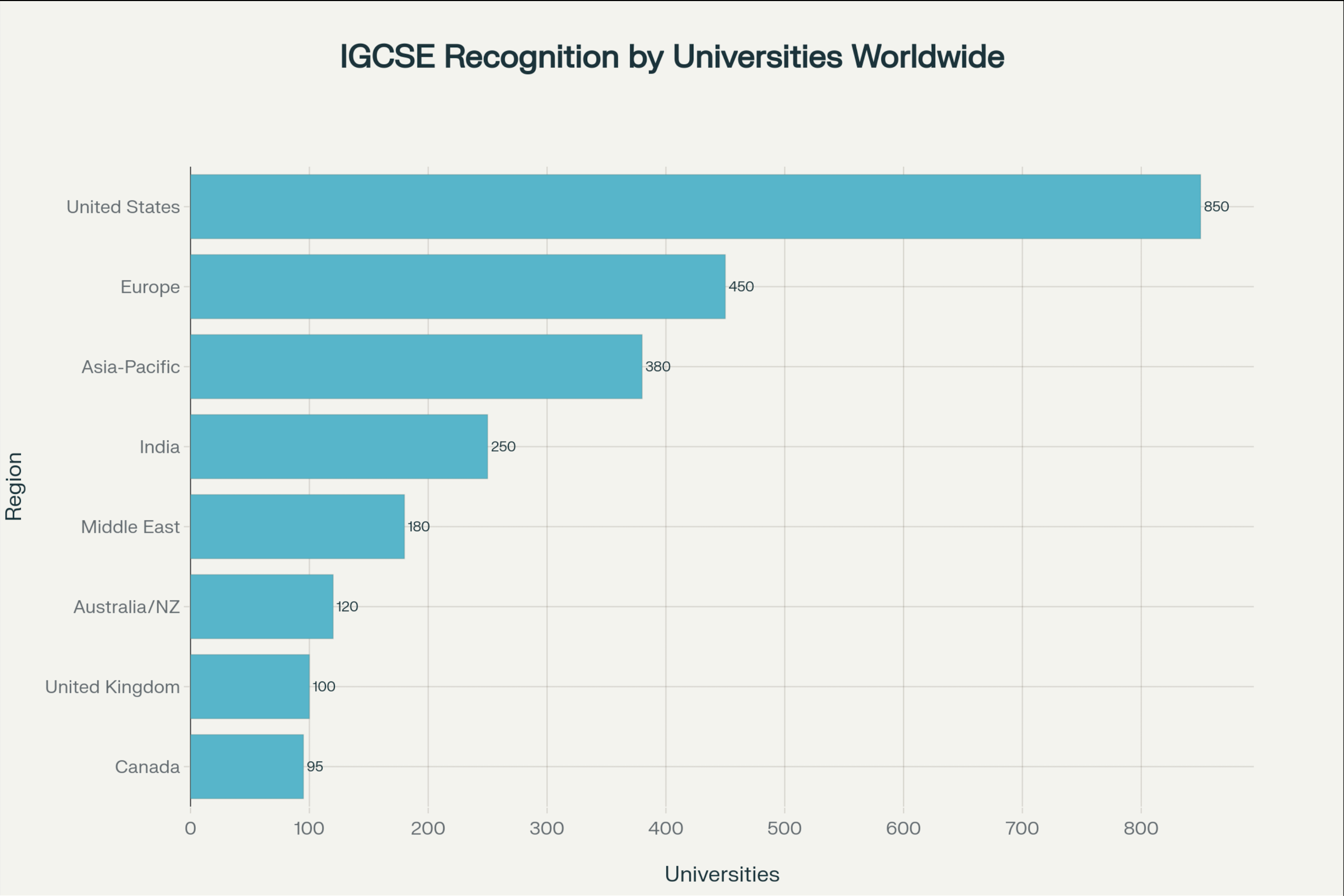IGCSE Grade 9 & 10 — If you’re a parent in Dubai, Chennai, Mumbai, Delhi, Bangalore, Hyderabad, Pune, or Kochi, you’re likely in the middle of one of the most important decisions for your child’s future. And you’re not alone. The International General Certificate of Secondary Education (IGCSE) has become more than just another curriculum option—it’s a powerful pathway that’s helping thousands of students unlock opportunities at top global universities.
What makes the integrated IGCSE program for Grades 9 and 10 special? It strikes that rare balance between giving your child structure while also letting them explore their strengths and interests. Developed by Cambridge Assessment International Education and Pearson Edexcel, IGCSE is now recognized by universities in over 150 countries. Think of it as an academic passport that travels with your child wherever their dreams take them.
Here’s something that might surprise you: over 10,000 schools worldwide now offer IGCSE, and in India alone, the curriculum has grown by 17% year-on-year. That’s not just a number—it’s thousands of parents like you putting their trust in this approach. Whether you’re weighing IGCSE vs CBSE or IGCSE vs ICSE, what matters most is understanding how this curriculum can bridge the gap between where your child is today and where they want to be tomorrow.
What Is IGCSE and Why Should Global Recognition Matter to You?

Global University recognition of IGCSE qualifications across major regions, showing over 2,400 Universities worldwide accept IGCSE credentials.
This horizontal bar chart shows IGCSE recognition across 8 major regions, illustrating that over 2,400+ universities worldwide accept IGCSE qualifications. The United States leads with 850 universities, followed by Europe (450) and Asia-Pacific (380).
Let me break this down in simple terms. The International General Certificate of Secondary Education (IGCSE) is a globally recognized qualification for students aged 14-16, basically, your Grade 9 and 10 years. But here’s what makes it different from what many of us grew up with: instead of just memorizing facts for a big exam at the end, IGCSE asks students to think, apply, and solve problems.
Remember how traditional Indian boards often felt like endless chapters to memorize? IGCSE takes a different approach. It’s about understanding why things work, not just what they are. And universities around the world? They love this because it’s exactly how they teach.
Both Cambridge IGCSE and Pearson Edexcel IGCSE are recognized by the Association of Indian Universities (AIU), which means that when combined with AS/A Levels, your child can pursue higher education in India too. So you’re not closing any doors—you’re opening more of them.
Why This Matters for Your Family?
If you’re in Dubai, you probably already know that over 60% of international schools offer British curriculum programs, and the KHDA (Knowledge and Human Development Authority) fully recognizes IGCSE. For families who move around for work, this is huge—your child’s education doesn’t get disrupted every time you relocate.
In Indian cities like Chennai, Mumbai, Bangalore, Delhi, Hyderabad, Pune, and Kochi, IGCSE schools have been popping up rapidly.
What really resonates with parents I speak with is how IGCSE prepares children for the real world. In cities like Dubai, Bangalore, and Mumbai, where your child will likely work with people from dozens of countries, the curriculum’s focus on global citizenship and cultural intelligence isn’t just a nice-to-have—it’s essential.
Continued: next week 2. How IGCSE Differs from CBSE and ICSE (igcse-vs-cbse-icse) 26th October 2025








